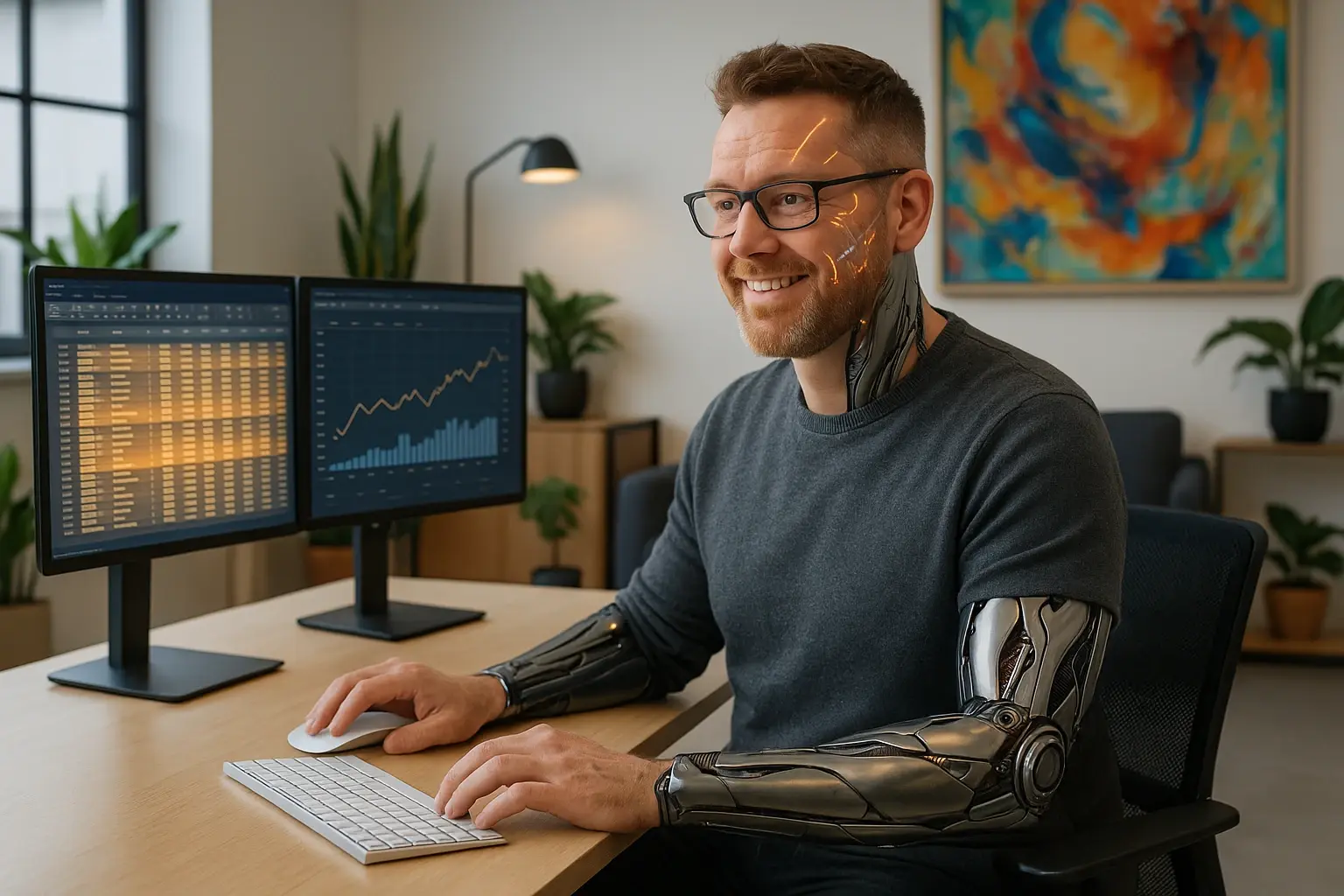It’s the question everyone’s asking right now — can AI replace your accountant?
If you’ve seen the rise of ChatGPT, Xero’s “just click to reconcile” magic, and a hundred new finance apps (all called 'Co-pilot') promising to automate everything, you’d be forgiven for thinking the days of the human accountant are numbered.
But for creative business owners — designers, filmmakers, agency founders, content creators, and the like — the truth is a little different. AI might handle the numbers, but it can’t handle the nuance.
Here’s why you still need a human accountant in your corner.
1. AI doesn’t understand your story
Every creative business is different. Some have a few directors and a small team; others are a patchwork of freelancers, contractors, and collaborators.
AI can categorise transactions, but it can’t interpret context. It doesn’t know whether that £2,000 camera is used by your own business for content creation or whether it is loaned out to other businesses for hire. It won’t question whether that restaurant meal was entertaining clients, part of an overnight business trip or the staff Christmas do.
A good accountant asks those questions because they know there are tax implications of getting the classification right and they know what can go wrong if you don't.
2. Tax planning isn’t a tick-box exercise
Yes, AI can help you calculate your Corporation Tax. But can it spot that you’d be better off extracting profits through a mix of salary, dividends, and pension contributions to save thousands over time?
Can it explain why putting your partner on the payroll makes sense — or doesn’t — based on your household’s wider tax position?
Tax is rarely about one transaction. It’s about weaving together all the little details of your financial life into one cohesive plan. That’s where human insight shines.
3. The rules keep changing (and AI doesn’t always keep up)
AI tools are trained on past data — but tax rules evolve constantly.
From Making Tax Digital for Income Tax (coming soon) to Companies House verification rules under the Economic Crime and Corporate Transparency Act, staying compliant isn’t something an algorithm can always guarantee.
Accountants live and breathe this stuff. We spend hours reading HMRC updates and legislation so you don’t have to — and so we can tell you when something you read online is out of date or just plain wrong.
4. Creative finances are rarely “standard”
AI loves clean, predictable patterns. The creative world is anything but.
One month you’re billing £20,000 for a major campaign; the next, you’re reinvesting in new kit, software subscriptions, or travel for a shoot abroad.
You might run multiple companies for different projects, or have personal brand income alongside agency work. AI struggles with those blurred lines between business and personal — but an accountant knows exactly how to handle them.
5. AI can’t reassure you
Perhaps the biggest difference of all: AI can answer questions, but it can’t offer reassurance.
When you get that brown envelope from HMRC, you don’t want an automated chatbot — you want someone who can calmly explain what’s happening, what to do next, and how to fix it.
A human accountant doesn’t just give answers — they give confidence.
6. The best accountants use AI — they don’t fear it
AI is brilliant at speeding up the boring stuff. At ESXR, we use smart automation for data entry, receipt capture, and error-checking — freeing up time to focus on what actually matters: strategy, insight, and creative problem-solving.
The future isn’t “AI or accountant.” It’s “AI and accountant.”
The human brings the wisdom, experience, and empathy. AI just gives us more time to use them.
The bottom line
AI can crunch your numbers.
But only a human accountant can help you make sense of them.
So, if you’re a creative business owner wondering whether AI can replace your accountant — the answer is no. But your accountant should be using AI to make your life easier, more profitable, and with peace of mind.
Found that content useful?
Why not sign up for more good stuff!!


